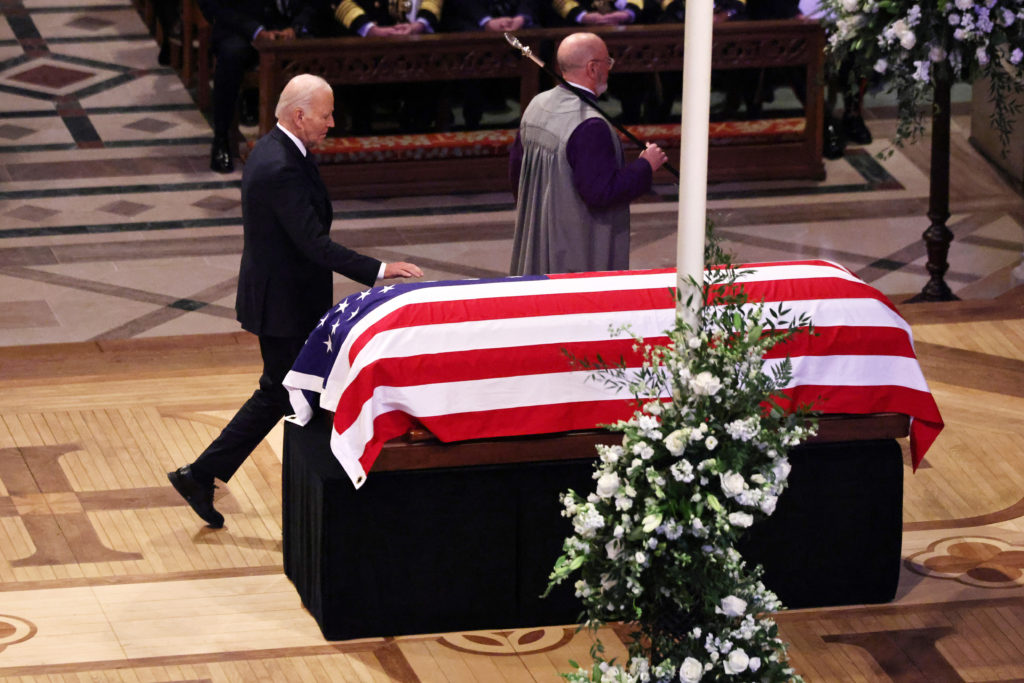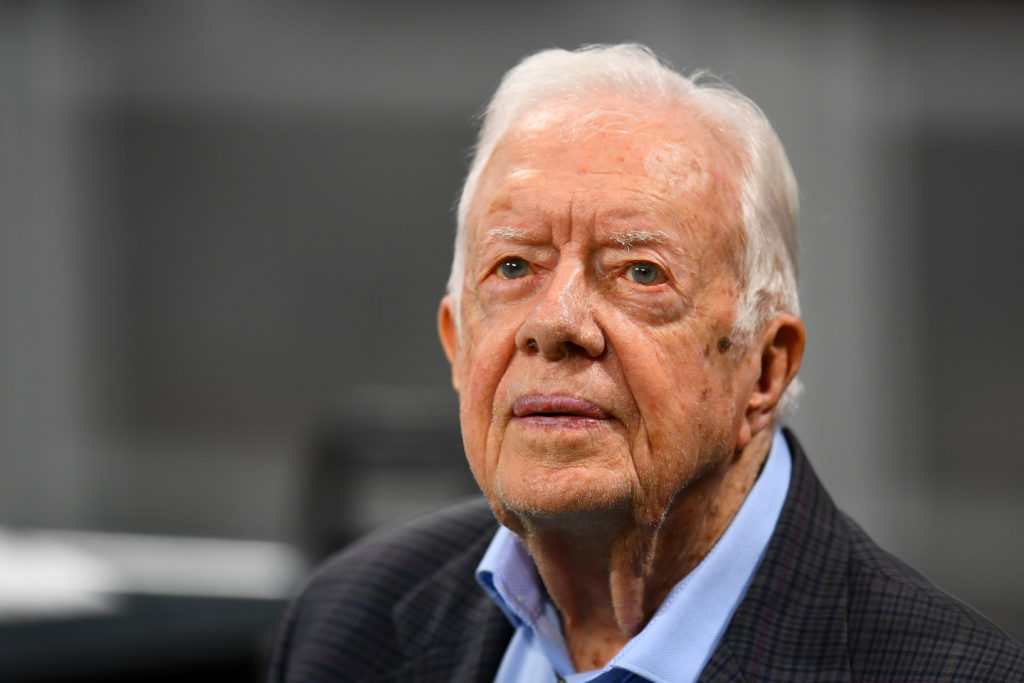EULOGIES to Jimmy Carter were always going to be profound and heartfelt - especially among the Irish.
For a president who only visited Ireland's shores after his time in the Oval Office, he always commanded a particular affection and pride in Irish hearts.
His sincerity, humility and tenacity struck a chord on the Emerald Isle, as has been reflected in the outpouring of sincere sadness at his passing by the country's leaders from Taoiseach to Áras an Uachtaráin and Embassies.
The only US president to win a Nobel Peace Prize after leaving office, and be closely associated with meaningful humanitarian action with his Carter Center and Habitat for Humanity, the former peanut farmer, peach state governor and Baptist preacher made unlikely and unexpected history with the Irish during his term.
 President Joe Biden touches the flag-draped casket of former U.S. President Jimmy Carter on his way to deliver a eulogy during Carter's state funeral at Washington National Cathedral on January 9, 2025
President Joe Biden touches the flag-draped casket of former U.S. President Jimmy Carter on his way to deliver a eulogy during Carter's state funeral at Washington National Cathedral on January 9, 2025He sowed the deep trans-Atlantic seeds of our peace process, which was the deciding point in its eventual success.
In boldly departing with tradition in 1977 whilst in office, President Carter, the press reported, "called for peaceful settlement between Catholics and Protestants in Northern Ireland" and promised that the United States "would explore job-creating prospects if a settlement was reached."
Fast forward to the Clinton and now Biden era, and that cornerstone strategy remains longstanding US policy and practice, demonstrated with determination by current White House Envoy Joe Kennedy III.
By installing the psychological structure for that trans-Atlantic bridge to Irish peace, Jimmy Carter's legacy remains palpable to this day.
There remains a direct lineage to the future American engineer of Irish peace, Senator George Michell who brokered the globally-lauded Good Friday Agreement some 21 years after Carter's initial intervention.
Nowhere was Senator Mitchell more especially affected by the gruesome alternative to peace than in Omagh.
The atrocity was a reminder of the price of failure and need for unstoppable determination for conflict resolution, Irish style.
George Mitchell was so affected by the plight of the survivors that he named his new-born daughter Claire after one of them, blinded in the blast.
 Jimmy Carter's presence, personality and prowess were pivotal to peacebuilding
Jimmy Carter's presence, personality and prowess were pivotal to peacebuildingIn Boston's Edward Kennedy Center in 2023, he held up a media front page pictorial tribute to the Omagh survivors at my request, sternly overruling his staff's efforts to divert him to the conference instead.
Similarly, Jimmy Carter's presence, personality and prowess were pivotal to peacebuilding, an ongoing lesson for today's leaders both in Ireland and the US.
Carter's ability to inspire and ultimately motivate were on show as I watched from just feet away at my former US alma mater, the University of Notre Dame.
The 91-year old Carter was Keynote Speaker at the commemoration of his friend, the university's renowned former president, Father Ted Hesburgh at a star-studded event in its packed 10,000 seater auditorium in 2015.
Following a veritable Who's Who list of speakers onto the podium who each excelled in their oratory, I felt the up-close palpable pressure on the nearby nonagenarian former president to maintain the stellar standard.
Fittingly, he delivered anecdotes and a eulogy that to this day receives a standing ovation and remains an unforgettable 'show them how it's done' moment.
Despite enduring the 'slings and arrows of outrageous fortune' whilst in office, Carter's policy emphasis was on promoting peacebuilding and human rights both then and thereafter, whether domestically, Ireland, the Middle East or beyond.
As a new, uncertain and apprehensive presidential term and incumbent begins from January 20, Jimmy Carter's legacy of 'showing how it's done' could be an invaluable blueprint for US presidents going forward.

